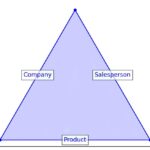Have you ever met someone who holds an advanced degree or years of experience in a high-skill profession—but is currently driving for a rideshare company or working in retail? You’re witnessing the phenomenon of underemployment, and it’s more common than you might think. Highly skilled engineers, analysts, and creatives often find themselves sidelined in roles that don’t leverage their training or expertise. The world isn’t short on talent—it’s just misallocated.
But what if we could tap into this cognitive surplus?
What Is Cognitive Surplus?
Cognitive surplus refers to the combined brainpower, time, and creativity of people not currently being fully utilized in the workforce. In today’s knowledge economy, this surplus represents one of the greatest untapped resources. These are people with the will, skill, and time to contribute meaningfully—but they lack a formal outlet.
That’s where the open source movement shines. It has created a digital infrastructure that lets people apply their talents to real-world projects, no job application necessary. Whether it’s software development, content creation, or problem-solving, open platforms have become a haven for skilled minds looking to stay sharp and make an impact.
Related Post: Buy and Sell Innovation
Why Open Source Wins
If you think open source software is a second-rate alternative to expensive corporate products, think again. You’re likely already using open source tools whether you realize it or not. The Firefox browser, WordPress website builder, and MySQL database platform are all open source. So is Linux, the operating system behind most web servers. And yes, my very blog posts were written in OpenOffice Writer—another free, volunteer-created alternative to Microsoft Word.
These aren’t fringe tools. They’re robust, secure, and constantly improved by a global network of contributors who care deeply about the quality of their work.
The open source community doesn’t just benefit techies, either. Sites like Quirky and other crowdsourced innovation platforms are connecting skilled individuals with product developers, inventors, and entrepreneurs. These platforms allow engineers and designers to contribute to product development in exchange for recognition, royalties, or even equity. This is where the lines blur between hobby, professional practice, and entrepreneurial opportunity.
Why This Matters for Business Owners
For small business owners, cognitive surplus presents a remarkable opportunity. You may not have the budget to hire a full-time data scientist or developer, but you might find one who’s eager to contribute to a side project, beta test your app, or improve your system in exchange for exposure or portfolio development.
Here are a few ways businesses can tap into this surplus:
- Open Source Contributions: Use or support open source software for your operations. Many tools offer enterprise-grade features with zero licensing fees.
- Crowdsourced Problem Solving: Platforms like wazokucrowd or HeroX allow you to post challenges and get input from brilliant minds around the world.
- Skill-Based Volunteering: Websites like Catchafire match nonprofits and startups with professionals who want to give back using their specific skills.
- Collaborative Development Platforms: Platforms such as GitHub aren’t just for coders; they’re hubs of innovation where marketing, documentation, UX, and more come together.
Keeping Skills Sharp
For professionals, contributing to open projects helps keep their skills from fading. The longer an engineer works outside of their field, the more their technical edge dulls. Volunteering time or contributing to collaborative platforms helps maintain competence and credibility—and in some cases, it can even lead to job offers or consulting gigs.
We’re entering a world where informal, decentralized collaboration can rival the output of formal institutions. Businesses that recognize this shift—and find ways to participate in it—stand to gain massively.
So, how can you leverage cognitive surplus personally or for your business? Could it be time to explore how your side project or product idea might attract talented contributors looking for purpose, not just a paycheck?












